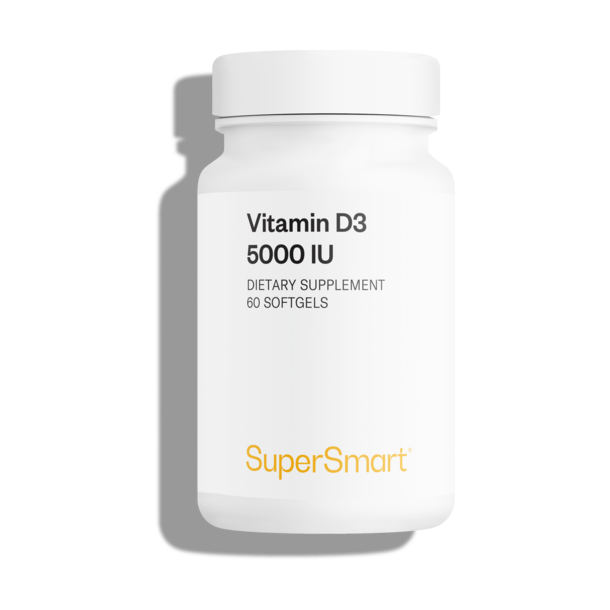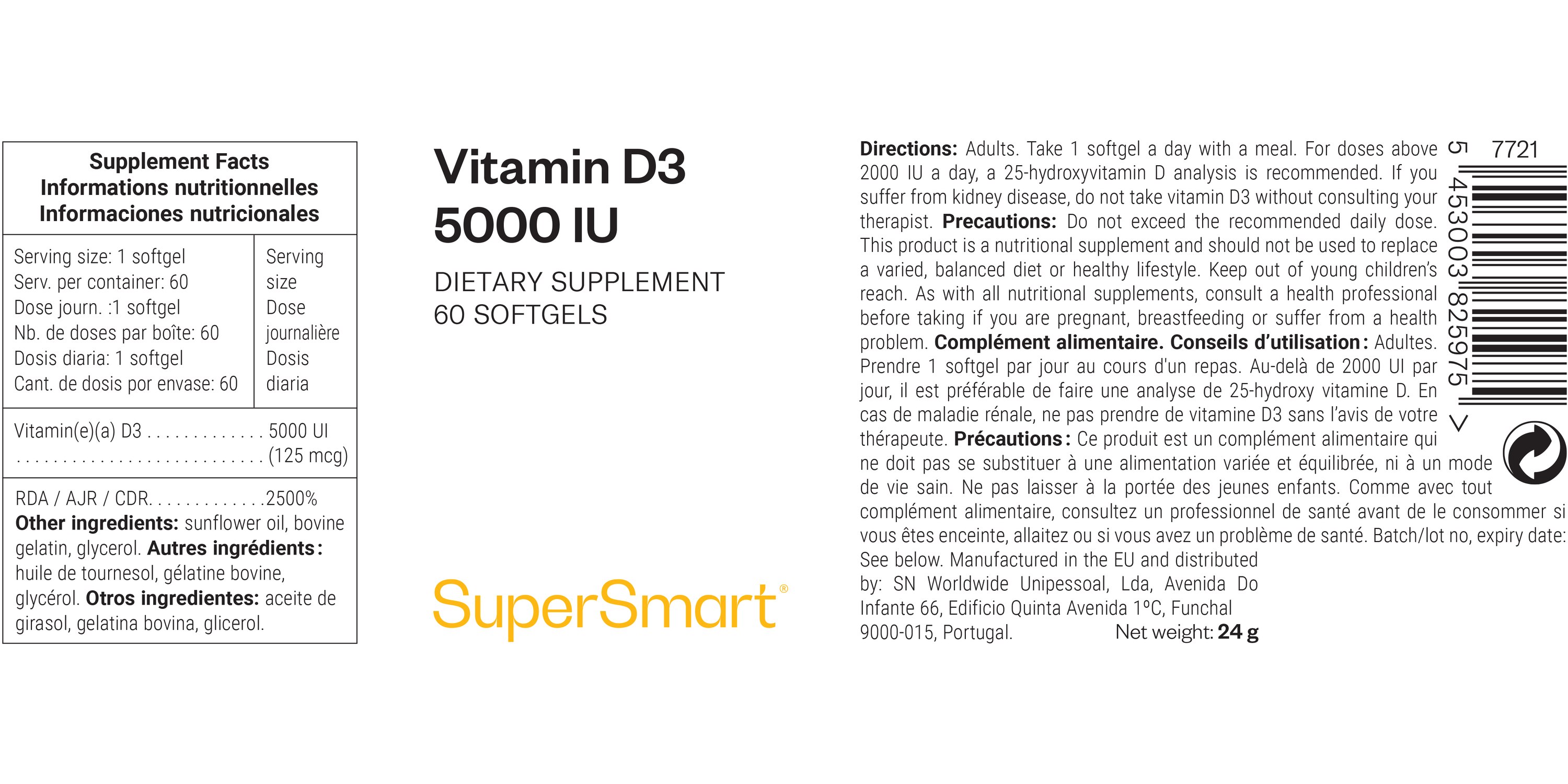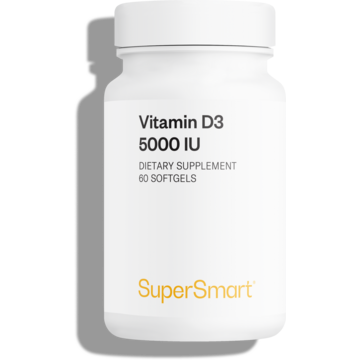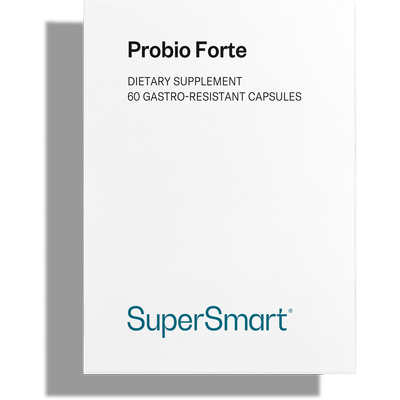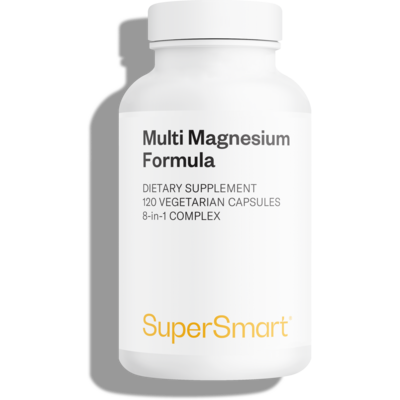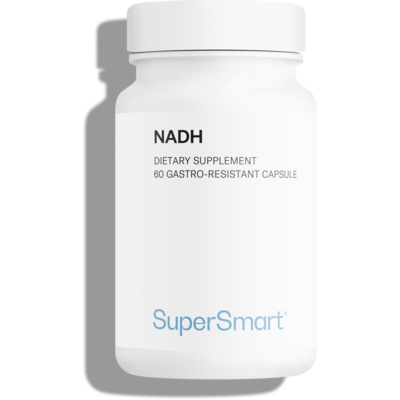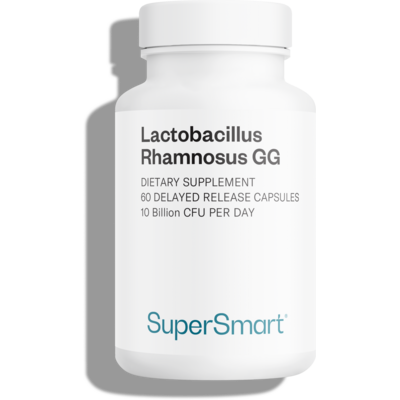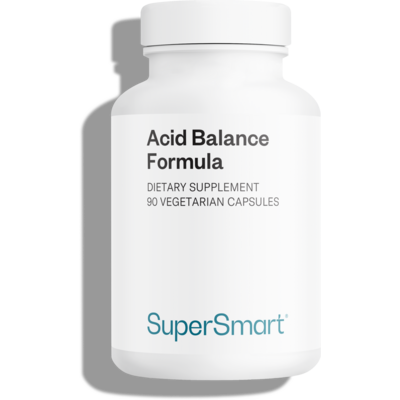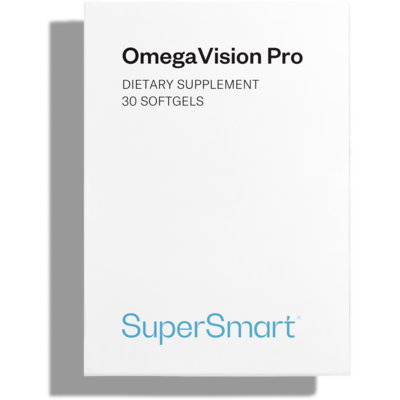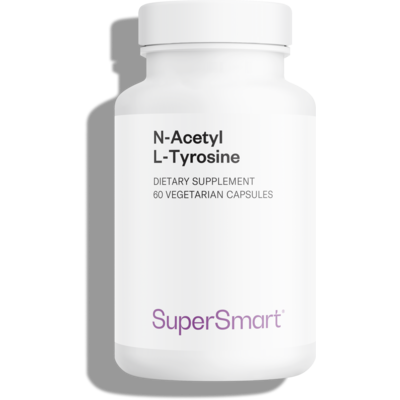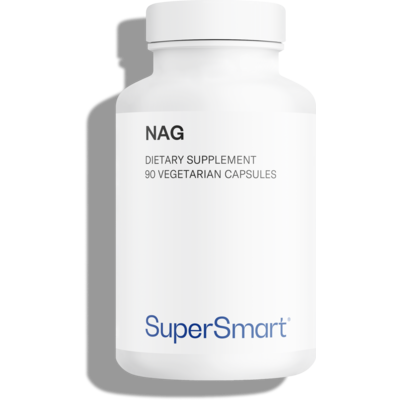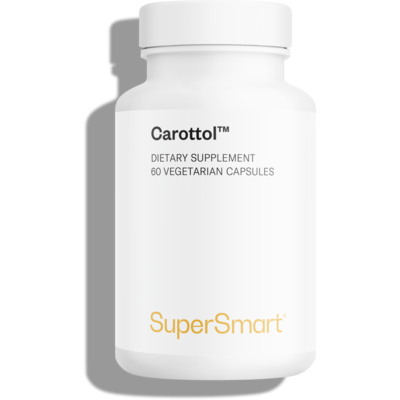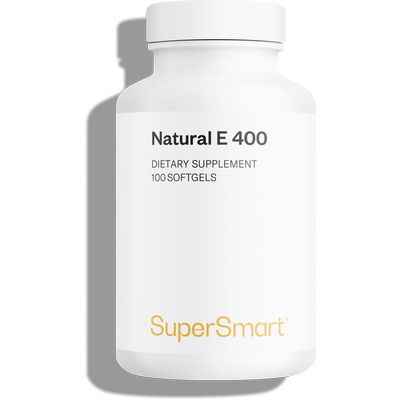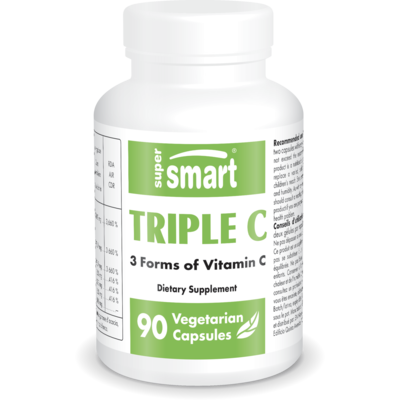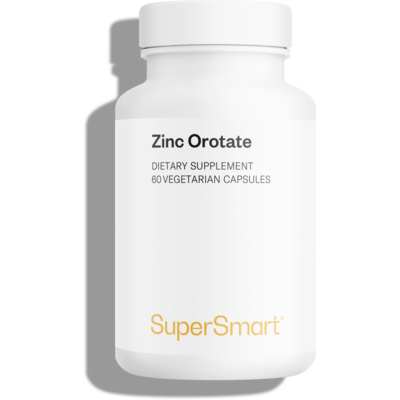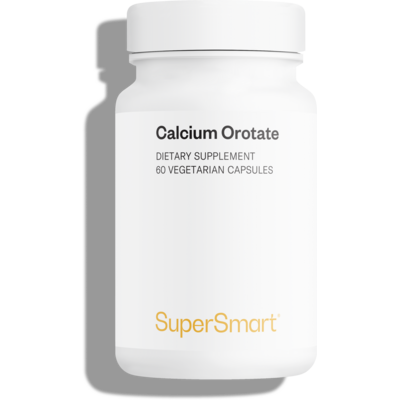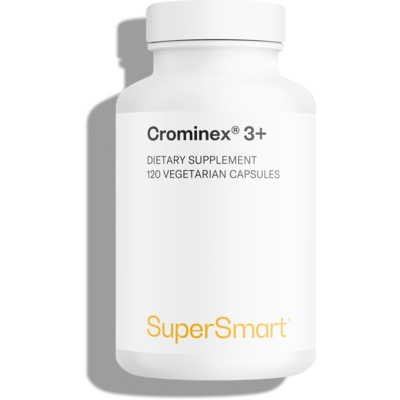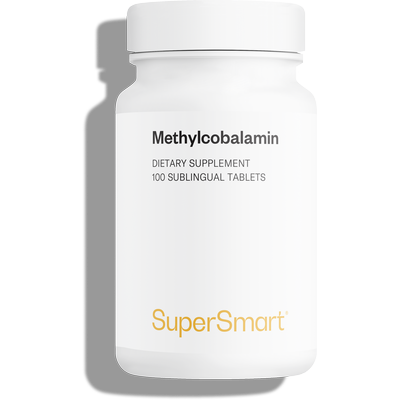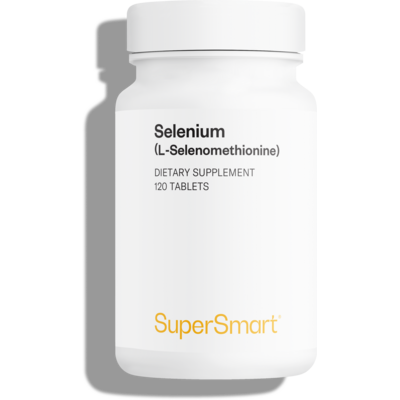Vitamin D3 5000 IU provides a high-potency, bioavailable form of vitamin D3, delivered in softgel form and combined with sunflower oil to support efficient absorption and utilization by the body.*
Vitamin D plays an important role in a wide range of normal physiological processes. Supplementation with vitamin D3 may help support healthy vitamin D status as part of a balanced diet and lifestyle.*
Who is Vitamin D3 5000 IU Intended For?
Vitamin D3 5000 IU is designed for individuals seeking to support and maintain adequate vitamin D intake, particularly during periods of limited sun exposure.*
Vitamin D is naturally synthesized in the skin following exposure to ultraviolet B (UVB) rays from sunlight. Seasonal changes, geographic location, lifestyle habits, and individual physiology may influence endogenous vitamin D production.*
Vitamin D3 supplementation may be considered as part of a nutritional strategy for individuals with limited sun exposure or increased nutritional needs, depending on personal circumstances and dietary intake.*
Vitamin D3 5000 IU may be appropriate for:
- Individuals with limited exposure to sunlight due to seasonal or lifestyle factors.*
- Those who spend minimal time outdoors or consistently use sun protection.*
- Individuals with darker skin tones living at higher latitudes.*
- Adults over the age of 50 seeking to support normal vitamin D metabolism.*
- Individuals following dietary patterns low in vitamin D–rich foods.*
Individual vitamin D needs may vary, and supplementation should be tailored to personal circumstances and professional guidance.*
Why is Vitamin D Important?
Vitamin D contributes to the normal absorption and utilization of calcium and phosphorus and plays a role in maintaining normal bone and muscle function.*
It also supports normal immune system function and is involved in various physiological processes throughout the body.*
What is Considered an Appropriate Intake of Vitamin D?
Scientific research continues to explore optimal vitamin D intake and circulating levels. Nutritional recommendations may vary depending on age, geographic location, lifestyle factors, and individual health considerations.*
Vitamin D3 5000 IU provides a higher-strength option for individuals whose needs may not be met through diet and sun exposure alone.*
What Distinguishes Vitamin D3 5000 IU?
Vitamin D3 5000 IU is formulated with attention to quality, bioavailability, and consistency.*
- Vitamin D3 (cholecalciferol), the form of vitamin D naturally produced by the body, is included to support effective utilization.*
- A high-potency serving of 5000 IU provides a concentrated source of vitamin D for flexible supplementation strategies.*
- Softgel delivery with sunflower oil supports absorption of this fat-soluble vitamin.*
Frequently Asked Questions About Vitamin D
Does sun exposure alone maintain vitamin D levels year-round?
Sun exposure contributes to vitamin D synthesis; however, factors such as season, latitude, skin coverage, and lifestyle habits may influence production.*
Does aging affect vitamin D metabolism?
Vitamin D metabolism may change with age, and dietary intake and lifestyle factors can influence vitamin D status over time.*
What role does vitamin D play in the body?
Vitamin D is involved in multiple normal physiological processes, including those related to bone structure, muscle function, immune activity, and cellular signaling.*
Important Considerations
As with any dietary supplement, individual responses may vary. Vitamin D3 5000 IU is intended to be used as part of a healthy lifestyle and is not a substitute for medical care or prescribed treatments.*
Individuals who are pregnant, nursing, taking medications, or managing health conditions should consult a qualified healthcare professional before use.*
WARNINGS
Do not exceed the recommended daily dose. This product is a nutritional supplement and should not be used as a substitute for a varied and balanced diet or a healthy lifestyle.
STORAGE
Store in a cool, dry place away from direct sunlight, heat, and humidity.
Keep out of reach of children.
PREGNANCY AND MEDICAL CONDITIONS
If you are pregnant, breastfeeding, or have any medical conditions, consult your healthcare provider before using this product.
SUPPLEMENT INTERACTIONS
Consult your healthcare provider before use, especially if you are taking any medications or other supplements as there may be potential interactions.
*These statements have not been evaluated by the Food and Drug Administration. This product is not intended to diagnose, treat, cure, or prevent any disease.
Serving Size: 1 softgel
Servings Per Container: 60 |
Amount
Per Serving |
| Vitamin D3 |
5,000 IU |
Other ingredient: sunflower seed oil.
RDA in Vitamin D: 2,500%. |
Serving size: Take 1 softgel a day with a meal. For doses above 2000 IU a day, a 25-hydroxyvitamin D analysis is recommended. If you suffer from kidney disease, do not take vitamin D3 without consulting your therapist.
Servings per container: 60
Storage: Store away from direct light, heat, and humidity.
Cautions: For adults only. Do not exceed the recommended daily dose. Keep out of reach of children. Consult a healthcare provider before taking this supplement and if you are pregnant, breastfeeding, or having health concerns.*
This product is a dietary supplement and should not be used as a substitute for a varied, balanced diet and a healthy lifestyle.
- Ganji V, Zhang X, Tangpricha V. Serum 25-hydroxyvitamin D concentrations and prevalence estimates of hypovitaminosis D in the U.S. population based on assay-adjusted data. J Nutr 2012;142(3):498–507. doi: 10.3945/jn.111.151977
- Greene-Finestone LS, Berger C, de Groh M, Hanley DA, Hidiroglou N, Sarafin K et al. 25-Hydroxyvitamin D in Canadian adults: biological, environmental, and behavioral correlates. Osteoporos Int2011;22(5):1389–1399. doi: 10.1007/s00198-010-1362-7
- PÃ
Âudowski P. Konstantynowicz J, Jaworski K. Assessment of vitamin D status in Polish adult population. Standardy Medyczne/Pediatria 2014;(11):609–617.
- Vierucci F, Del Pistoia M, Fanos M, Erba P, Saggese G. Prevalence of hypovitaminosis D and predictors of vitamin D status in Italian ... adolescents. It J Pediatr 2014;40:54 doi: 10.1186/1824-7288-40-54
- Hyppoènen E, Power C. Hypovitaminosis D in British adults at age 45 y: nationwide cohort study of dietary and lifestyle predictors. Am J
- Darling AL, Hart KH, Macdonald HM, Horton K, KangâÂÂombe AR, Berry JL, Lanham-New SA. Vitamin D ... in UK South Asian women of childbearing age: a comparative longitudinal investigation with UK European women. Osteoporos Int 2013;24:477–88
- Kroll MH, Bi C, Garber CC, Kaufman HW, Liu D, Caston-Balderrama A et al. Temporal Relationship between Vitamin D Status and Parathyroid Hormone in the United States. PLoS ONE 2015;10(3): e0118108 doi: 10.1371/journal.pone.0118108
- Brot C, Vestergaard P, Kolthoff N, Gram J, Hermann AP, Sùrensen OH. Vitamin D status and its adequacy in ... Danish ... women: relationships to dietary intake, sun exposure and serum parathyroid hormone. Br J Nutr. 2001;86 Suppl 1:S97–103. doi: 10.1079/BJN2001345
- http://ajcn.nutrition.org/content/36/6/1225.full.pdf
- Khan, Q. J., & Fabian, C. J. (2010). How I ... Vitamin D ... . Journal of ... Practice, 6(2), 97–101. doi:10.1200/jop.091087
- Christakos S, Dhawan P, Verstuyf A, Verlinden L, Carmeliet G. Vitamin D: metabolism, molecular mechanism of action, and ... . Physiological Reviews 2016; 96 (1): 365–408. doi: 10.1152/physrev.00014.2015 [PMC free article] [PubMed]
- Holick MF, Binkley NC, Bischoff-Ferrari HA, Gordon CM, Hanley DA, Heaney RP, et al. Guidelines for ... vitamin D ... revisited. J Clin Endocrinol Metab2012;97:1153–1158. doi: 10.1210/jc.2011-2601
- Romagnoli E, Pepe J, Piemonte S, Cipriani C, Minisola S. Management of ... : value and ... of assessing vitamin D nutritional status and advised levels of vitamin D supplementation. Eur J Endocrinol 2013;169(4):59–69.
- Sun et al, Vitamin D intake and risk of ... in US men and women, Am J Clin Nutr. 2011 June 8
- Qin, X. F., Zhao, L. S., Chen, W. R., Yin, D. W., & Wang, H. (2015). Effects of vitamin D on plasma lipid profiles in .... with ... : A randomized placebo-controlled trial. Clinical Nutrition, 34(2), 201–206. doi:10.1016/j.clnu.2014.04.017
- Qin, X. F., Zhao, L. S., Chen, W. R., Yin, D. W., & Wang, H. (2015). Effects of vitamin D on plasma lipid profiles in ... patients with ... : A randomized placebo-controlled trial. Clinical Nutrition, 34(2), 201–206. doi:10.1016/j.clnu.2014.04.017
- Cangussu, L. M., Nahas-Neto, J., Orsatti, C. L., Bueloni-Dias, F. N., & Nahas, E. A. P. (2015). ... of vitamin D supplementation alone on muscle function in postmenopausal women: a randomized, double-blind, placebo-controlled clinical trial. ... International, 26(10), 2413–2421. doi:10.1007/s00198-015-3151-9
- Wepner, F., Scheuer, R., Schuetz-Wieser, B., Machacek, P., Pieler-Bruha, E., Cross, H. S., ⦠Friedrich, M. (2014). Effects of vitamin D on ... : A randomized placebo-controlled trial. Pain, 155(2), 261–268. doi:10.1016/j.pain.2013.10.002
- Gröber U, Spitz J, Reichrath J, Kisters K, Holick MF. Vitamin D: Update 2013: From rickets prophylaxis to general ... . Dermatoendocrinol 2013;5(3):331–347. doi: 10.4161/derm.26738
- Wacker M, Holick MF. Sunlight and Vitamin D: A global perspective for health. Dermato-endocrinol2013;5(1):51–108. doi: 10.4161/derm.24494
- Wacker M, Holick MF. Sunlight and Vitamin D: A global perspective for health. Dermato-endocrinol2013;5(1):51–108. doi: 10.4161/derm.24494
- Engelsen O. The relationship between ultraviolet ... exposure and vitamin D status. Nutrients. 2010. May;2(5):482–95. doi: 10.3390/nu2050482
- Tripkovic, L., Wilson, L. R., Hart, K., Johnsen, S., de Lusignan, S., Smith, C. P., ⦠Lanham-New, S. A. (2017). Daily supplementation with 15 üg vitamin D 2 compared with vitamin D 3 to increase wintertime 25-hydroxyvitamin D status in ... South Asian and white European women: a 12-wk randomized, placebo-controlled food-fortification trial . The American Journal of Clinical Nutrition, 106(2), 481–490. doi:10.3945/ajcn.116.138693.
- Al-Shaar L, Mneimneh R, Nabulsi, Maalouf J, Fuleihan Gel-H. Vitamin D3 dose requirement to raise 25-hydroxyvitamin D to desirable levels in adolescents: Results from a randomized controlled trial. J Bone Miner Res 2014;29(4):944–51. doi: 10.1002/jbmr.2111
- Biancuzzo RM, Clarke N, Reitz RE, Travison TG, Holick MF. Serum concentrations of 1,25-dihydroxyvitamin D2 and 1,25-dihydroxyvitamin D3 in response to vitamin D2 and vitamin D3 supplementation. J Clin Endocrinol Metab 2013;98:973–979. doi: 10.1210/jc.2012-2114
- Heaney RP, Davies K, Chen T, Holick MF, Barger-Lux MJ. Human serum 25-hydroxycholecalciferol response to extended oral dosing with cholecalciferol. Am J Clin Nutr 2003;77:204–210.
- Ng K, Scott JB, Drake BF, Chan AT, Hollis BW, Chandler PD et al. Dose response to vitamin D supplementation in African Americans: results of a 4-arm, randomized, placebo-controlled trial. Am J ClinNutr 2014;99(3):587–98. doi: 10.3945/ajcn.113.067777
- Martineau AR, Cates CJ, Urashima M, Jensen M, Griffiths AP, Nurmatov U, Sheikh A, Griffiths CJ, Stefanidis C. Vitamin D for the management of ... . Cochrane Database of Systematic Reviews 2016, Issue 9. Art. No.: CD011511. DOI: 10.1002/14651858.CD011511.pub2.
- Annweiler C, Brugg B, Peyrin JM, Bartha R, Beauchet O. 2014. Combination of m. and vitamin D ... induced by amyloid-beta and glutamate. Neurobiol. Aging 35: 331–335.
- Annweiler C, Beauchet O. 2011. Vitamin D-... : randomized clinical trials should be the next step. ... 37: 249– 258.
- Brown J, Bianco JI, McGrath JJ, Eyles DW. 2003. 1,25-Dihydroxyvitamin D-3 induces ... factor, ... in embryonic rat hippocampal neurons. Neurosci. Lett. 343: 139–143.
- Buell JS, Dawson-Hughes B, Scott TM, et al. 2010. 25-Hydroxyvitamin D, ..., and ... in elders receiving home services. ... 74: 18–26.
- Etgen T, Sander D, Bickel H, Sander K, Förstl H. 2012. Vitamin D ... a systematic review and meta-analysis. Dement. Geriatr. Cogn. Disord. 33: 297–305
- Annweiler C, Llewellyn DJ, Beauchet O. 2013. Low serum vitamin D concentrations in ... : a systematic review and meta-analysis. J. ... . 33: 659–674.
- Llewellyn DJ, Lang IA, Langa KM, et al. 2010. Vitamin D and ... in elderly persons. Arch. Intern. Med. 170: 1135–1141.
- Slinin Y, Paudel ML, Taylor BC, et al. 2010. ... in Men (MrOS) Study Research Group. 25-Hydroxyvitamin D levels and ... in elderly men. Neurology 74: 33–41.
- Slinin Y, Paudel M, Taylor BC, et al. 2012. Study of ... Research Group. ... serum 25(OH) vitamin D and the ... in older women. J. Gerontol. A Biol. Sci. Med. Sci. 67: 1092–1098.
- Annweiler C, Beauchet O. 2012. Possibility of a new ... pharmaceutical composition combining m. and vitamin D. ... Aging 29: 81–91.
- Dawson-Hughes, B., Harris, S. S., Lichtenstein, A. H., Dolnikowski, G., Palermo, N. J., & Rasmussen, H. (2015). Dietary Fat ... Vitamin D-3 Absorption. Journal of the Academy of Nutrition and Dietetics, 115(2), 225–230. doi:10.1016/j.jand.2014.09.014
- Hollis BW. Circulating 25-hydroxyvitamin D levels indicative of vitamin D sufficiency: implications for establishing a new effective dietary intake recommendation for vitamin D. J Nutr 2005;135:317–322.
- Hollis BW. Circulating 25-hydroxyvitamin D levels indicative of vitamin D sufficiency: implications for establishing a new effective dietary intake recommendation for vitamin D. J Nutr 2005;135:317–322.
- Cédric Annweiler. ... de la vitamine D chez la personne âgée. OCL 2014, 21(3) D307. Clin Nutr 2007;85:860–8.

